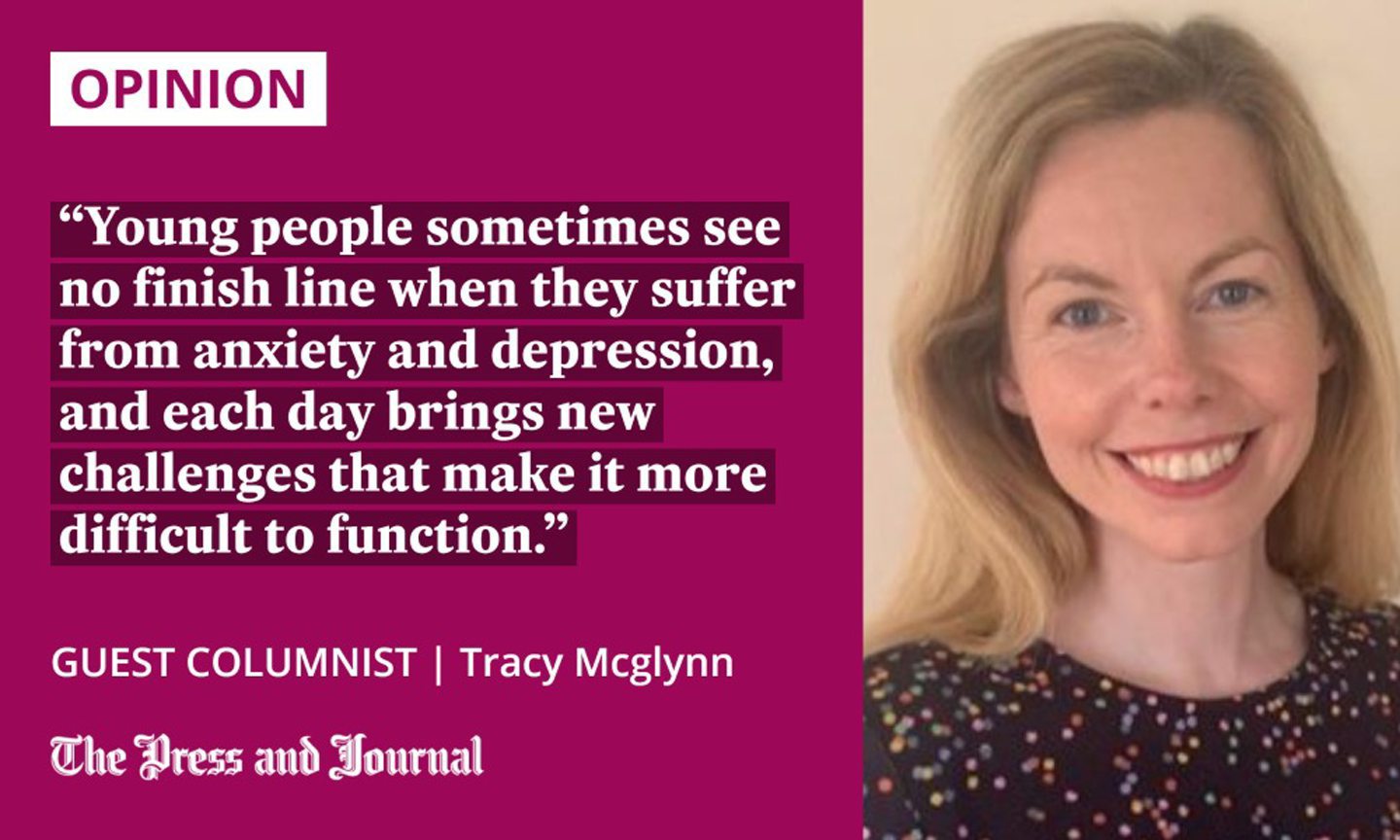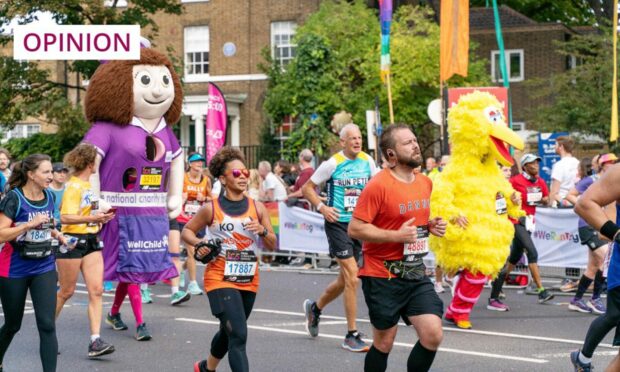Turn the TV on this Sunday and you will see over 40,000 runners attempt the London Marathon.
Some will amaze, others will entertain with their giant, cartoonish costumes, and then there will be the rest of us, just hoping to cross the 26.2 mile finish line in one piece.
My very good friend and fellow mum, Sarah, and I will be among the thousands of runners representing a charity. We will be proudly wearing our T-shirts for the Brent Centre for Young People, a new mental health charity in the Highlands, based in Inverness.
It is a well-established charity, having been founded over 50 years ago, and is one of the UK’s first mental health services specifically for young people. They offer to help with depression, anxiety, eating disorders, self-harm and many other challenges.

A marathon is a long-distance endurance event where the sheer length of it can feel overwhelming, and the finish line out of reach. For many young people who are suffering from mental health difficulties, each day may feel like a marathon.
Young people sometimes see no finish line when they suffer from anxiety and depression, and each day brings new challenges that make it more difficult to function. Every morning, getting to school or work may seem like dragging themselves to the start line of a race.
We have undertaken this challenge to raise awareness of this new service, and to raise money so the charity can provide care to young people in need in the Highlands.
Training for and running a marathon can help people cope with loss
It has been a personal challenge for us both to prepare for this event. Training has not been smooth. We have done our best to become fitter healthier versions of ourselves. Our kids, oblivious to our goal, have shared bugs and tried to sabotage our efforts, but we have persevered.
You may wonder why people are motivated to put themselves through the physical and emotional endurance of training and running a marathon. One reason is to cope with loss. It is an emotional day for many who are using the marathon as a means to remember someone they love who has suffered from an illness or who is no longer here.
It can give a sense of purpose at a time when people feel lost after a bereavement, and a sense of connection to others. A marathon is more than a run: it is a personal journey of all that a person has faced in getting to the start line and running through it.
There are many worthy causes out there, but we sincerely hope that you might support us to help a service that benefits young people in Highlands – you can donate by clicking here or here.
Tracy Mcglynn lives in Inverness


Conversation